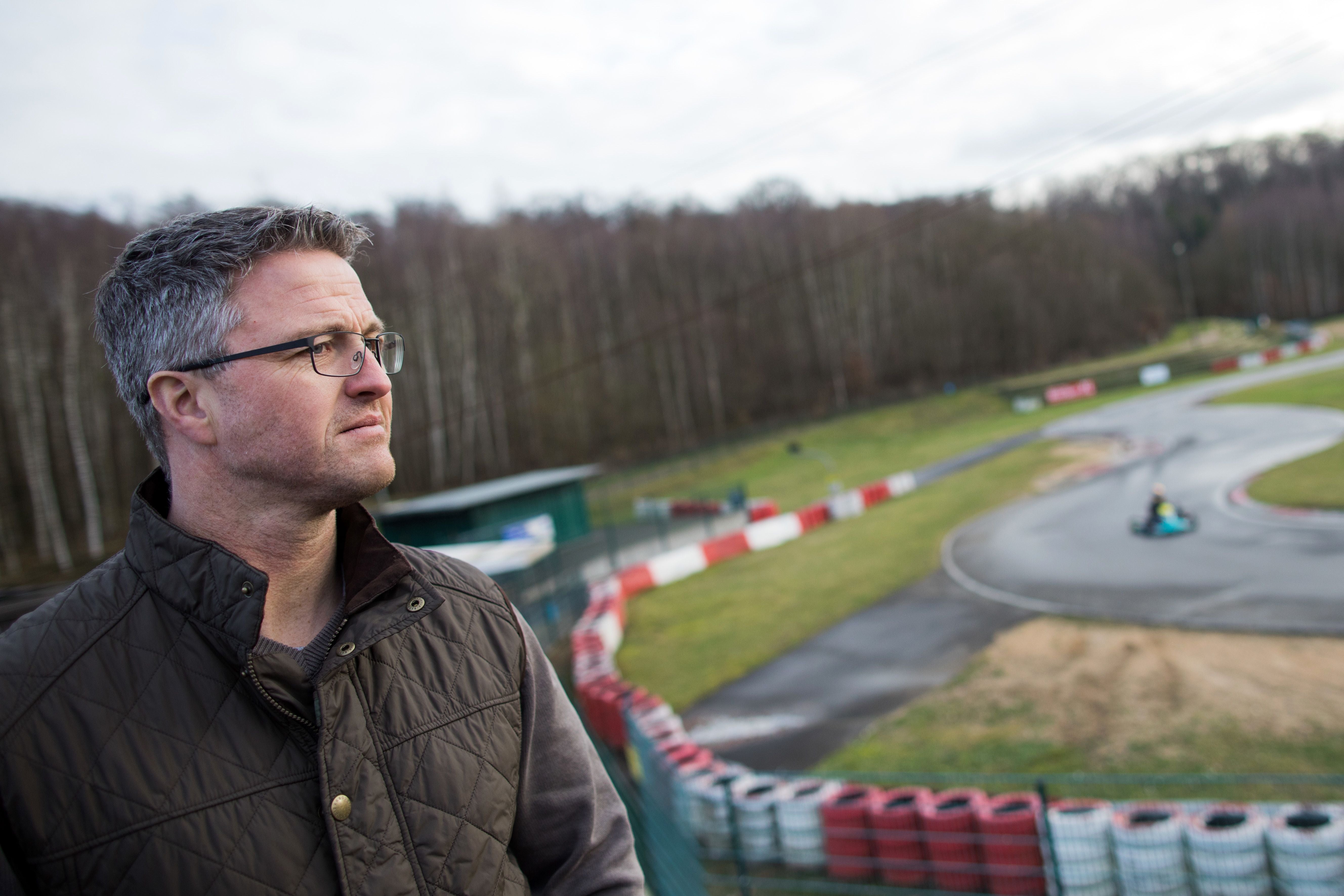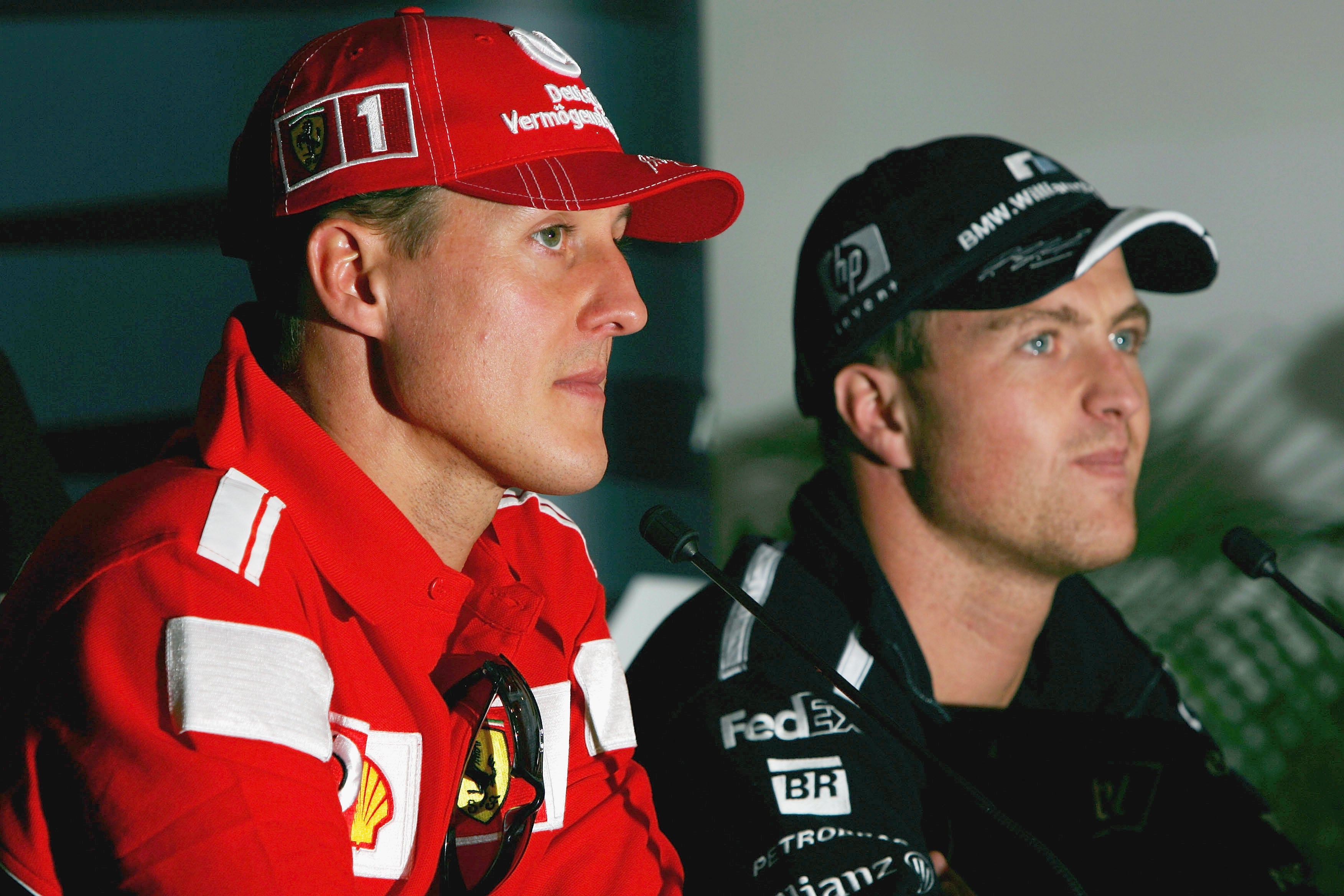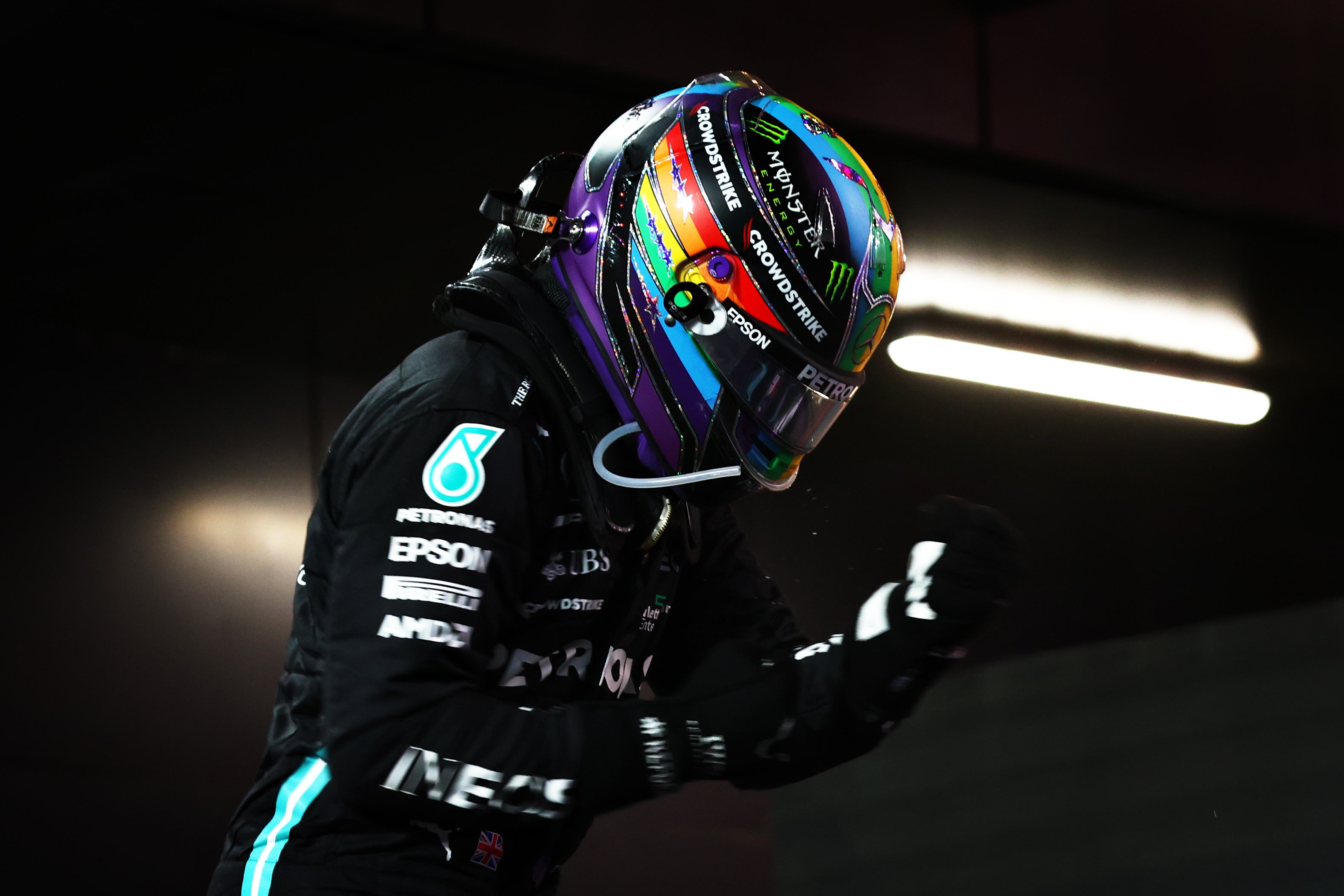The Independent's journalism is supported by our readers. When you purchase through links on our site, we may earn commission.
Why Ralf Schumacher coming out as gay shows F1’s shifting sands – at long last
Schumacher announced to the world on Sunday that he is in a same-sex relationship, becoming just the fourth driver in the history of Formula One to come out

It is a sign of how far Formula One has come in recent years that the news of ex-F1 driver Ralf Schumacher coming out as gay is no longer a thunderbolt from the blue.
In recent years, the increase in LGBTQ+ representation throughout the sport – whether it be team personnel, F1 staff or members of the media – has seen F1, at long last, move with modern times. Because previously, the overwhelming machismo of the sport would have made Sunday night’s announcement far less palatable to some.
Schumacher, younger brother of six years to seven-time world champion Michael, posted on Instagram a picture with his French business manager Etienne watching a sunset. It was captioned: “The most beautiful thing in life is when you have the right partner by your side with whom you can share everything.”
The response from within the sport would be as you should expect of a modern-day, forward-thinking social enterprise. McLaren boss Zak Brown replied to the post saying “Awesome”; Mercedes’ page responded with a love heart. But the wider significance of Schumacher, a six-time grand prix winner in motorsport’s premier competition between 1997-2007, coming out cannot be overstated.
Schumacher, 49, is just the fourth driver in the sport’s 74-year history to come out, following Mike Beuttler (who drove in F1 between 1971 and 1973), Mario de Araujo Cabral (who came out at the age of 75 after racing in F1 five times between 1959-1964) and Lella Lombardi, the only female driver to score points in F1.
The rarity of openly gay drivers in F1 makes Schumacher’s announcement significant. As an outspoken pundit for Sky Germany’s coverage of the sport, his continued presence in the paddock and in front of the cameras makes him a role model to LGBTQ+ people and fans of motorsport.
Christian Hewgill, an openly gay F1 broadcaster, put the point succinctly in a TikTok following Schumacher’s social media post: “I believed when I first started to realise that I might be gay around that age [13, 14] that it wasn’t possible to be both a huge sports fan and gay, let alone be involved in sport for a living and be out and open with who I am publicly and be gay. I just didn’t think the two could mix.
“You might be thinking that was a long time ago. Trust me, because people tell me in their numbers, that still happens to this day. That took its toll on me mentally, I kept myself from believing it was possible for me to be gay for years, a great deal of mental anguish. I didn’t come out until I was 20.
“To believe something you have to see something. There will be so many people now seeing Ralf Schumacher… for him to come out and say ‘yes I’m in a same-sex relationship’ is massive.”

The power of role models when it comes to LGBTQ+ and sport is monumental. We’ve seen that with the praise and respect shown to Jake Daniels, the professional footballer at Blackpool, who came out as gay at the age of 17. Within motorsport, the growth of the Racing Pride movement since its foundation in 2019 has created an environment of inclusivity for those with an LGBTQ+ background.
And, like a mass of societal issues, the emergence of Lewis Hamilton as a voice of support has been crucial.
In July 2021, on the eve of the Hungarian Grand Prix, Hamilton alongside Sebastian Vettel spoke out against Hungary’s implementation the previous month of a law preventing the teaching of homosexuality or transgender issues to under-18s. A referendum a year later on the issue was rendered invalid.

Hamilton was unequivocal in his opinion, describing the law as “unacceptable, cowardly and misguiding.” He added: “Everyone deserves to have the freedom to be themselves, no matter who they love or how they identify.”
The Mercedes driver has repeated his stance and shows solidarity with the gay community in Qatar, Saudi Arabia and Bahrain by wearing a rainbow helmet. He also wore it in Miami last May, as Florida governor Ron DeSantis pushed for a law barring public schools from teaching about sexual education and gender identity to all grades.
Hamilton also wore a helmet with a rainbow design in Spain in June for Pride Month. The vocality of the seven-time world champion on these issues, combined with his reach and following, has had an immense impact on gay people worldwide.
F1 is far from perfect when it comes to societal issues. The sport races in authoritarian regimes with poor human rights records; the saga involving Christian Horner and a female colleague sent a poor message to women in the sport and workplaces dominated by men. But Schumacher’s announcement is a progressive step: a sign of the sport’s shifting sands. Hopefully, as F1 returns duly to Hungary this weekend, the narrative will stay overwhelmingly positive.


